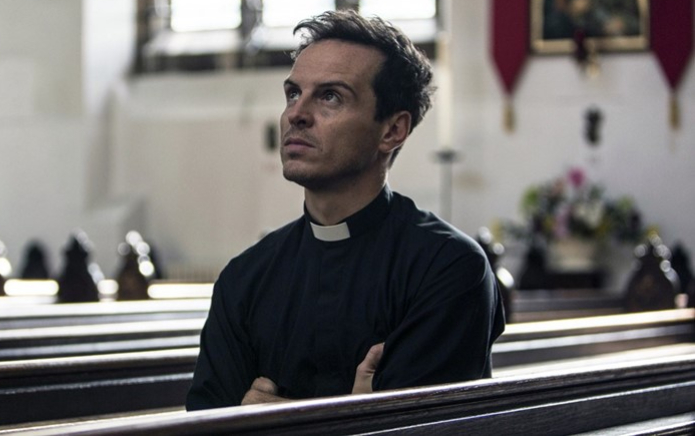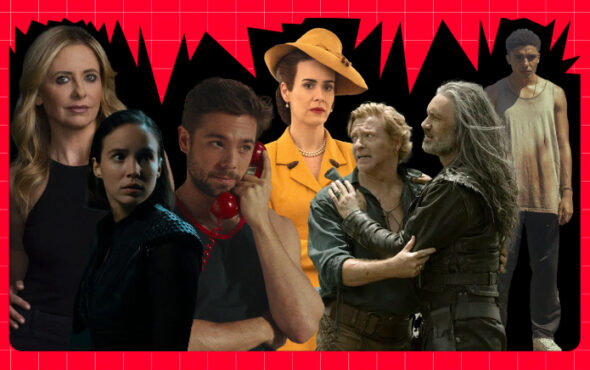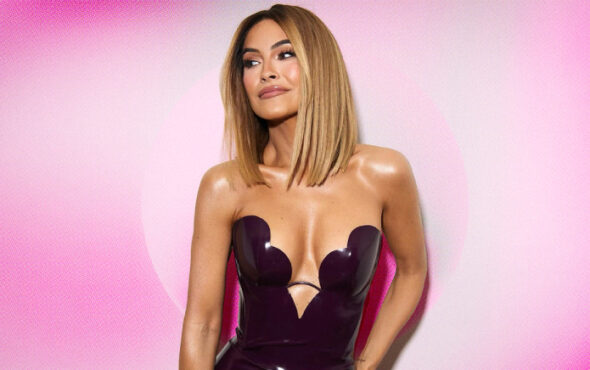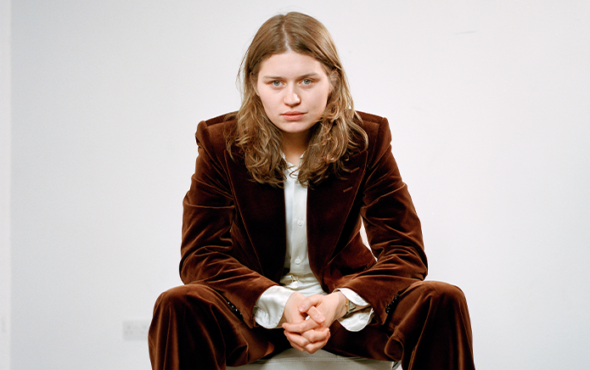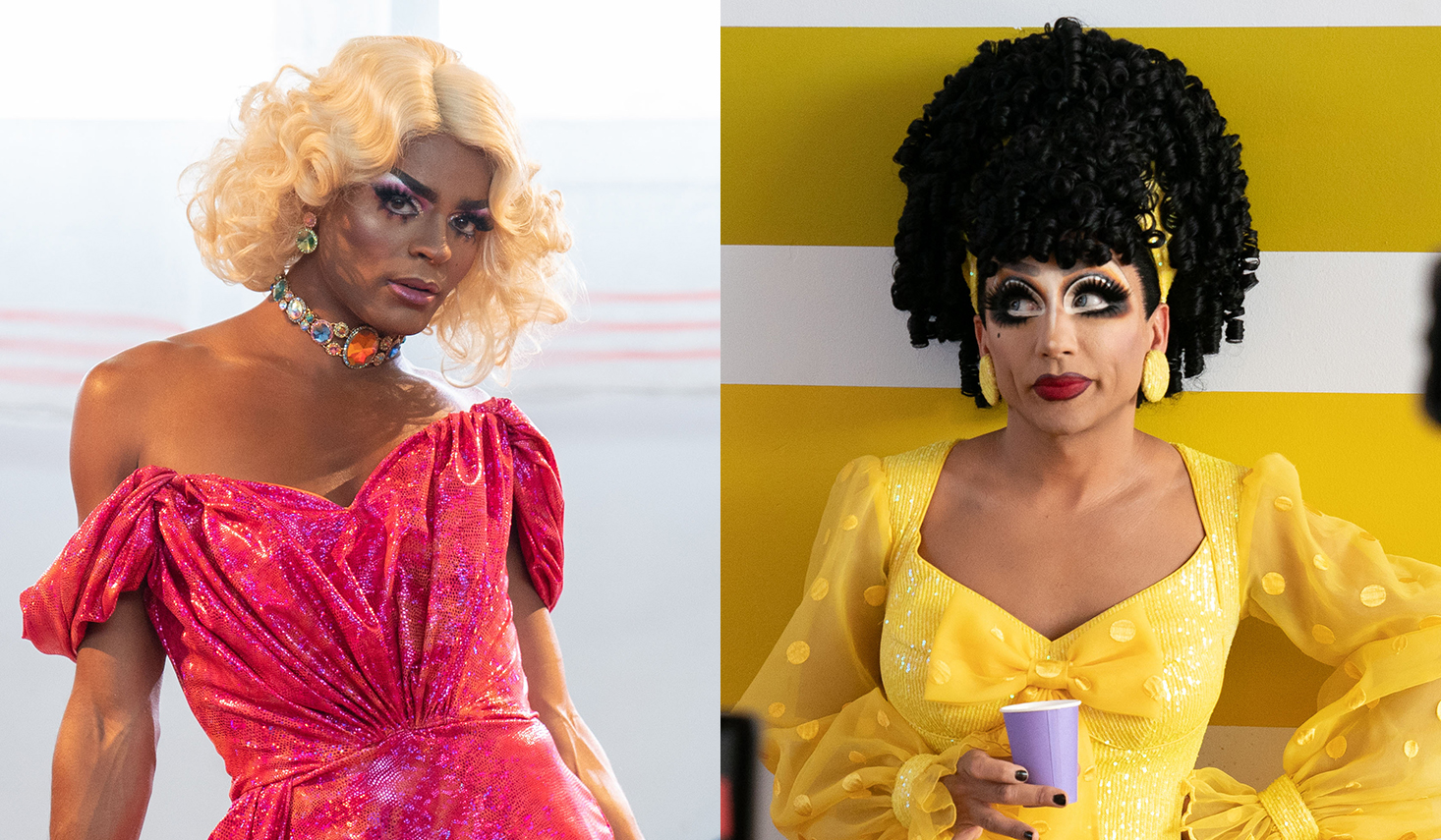
“I think you can expect a whole load of fabulousness,” says Layton Williams of Bad Education’s newly released fourth season. “It is very, very camp.” After playing Stephen Carmichael in the show’s initial run from 2012 to 2014, the star is back – though this time viewers will see him teaching drama at Abbey Grove School instead of causing it as a pupil. The latest episodes follow his character as he and fellow OG Mitchell (Charlie Wernham) each grapple with being on the other side of the desk as they educate an all-new Class K. Taking the lead from Jack Whitehall in the relaunch of Bad Education, Layton serves as a co-writer and adds that the revival is “different” and viewers will either “get behind it” or they won’t. One thing everyone will be able to get behind, though, is the surprise cameo from a certain winner of RuPaul’s Drag Race – Bianca Del Rio. Appearing in the second episode, the queen praises the series for its authentic depictions of LGBTQ+ stories in the context of the real world: “That to me is what’s so great because it is real life, you know what I mean?” she states. “It’s not like some artistic stretch of a struggle and some big issue. Walk down the street and try not to hit a gay person. I live in Palm Springs, they’re everywhere.”
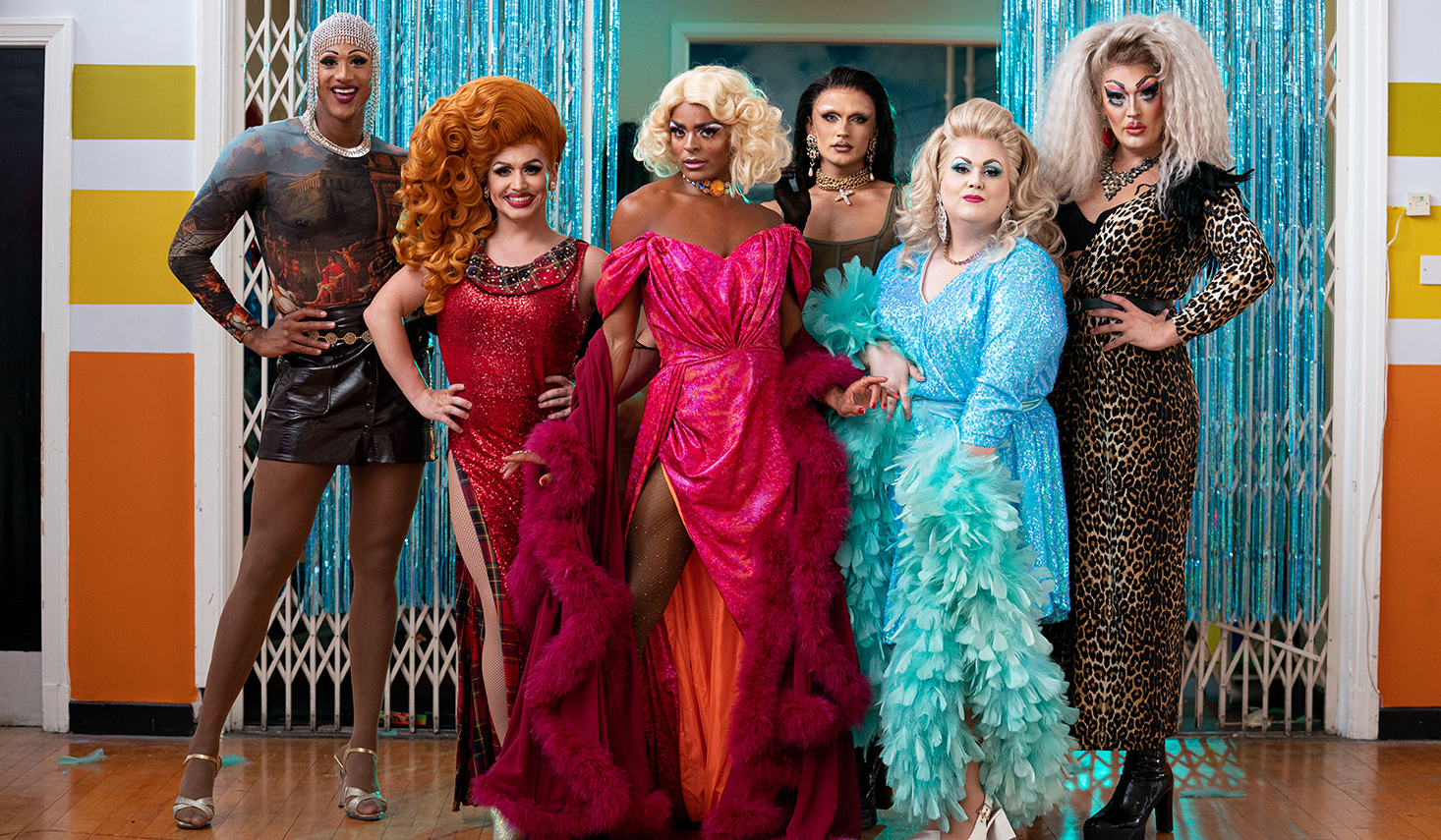
Tell us a bit about the episode Bianca makes a cameo in.
LAYTON: I think you can expect a whole load of fabulousness. It is very, very camp. It’s so funny because it’s two storylines happening at the same time. So you have the A storyline and the B storyline, which is me trying to sneak off to this drag brunch to get scouted by Bianca Del Rio. And then I basically find out that somebody has ratted me out and they don’t want to come on the trip, which is weird because usually these kids are so up for getting out of class. So I’m like, ‘Right, it is time to find out who the snake is’. So I go through all of the kids reading them to filth. Literally every single one of these kids gets a read, I put my sunglasses on. So, he’s trying to find out, but he’s obviously planting all of these fake rumours to see what is going on and all these kids are causing carnage around the school. And then the B storyline is that our headmistress has an Ofsted inspection and unfortunately, the Ofsted inspector and the taskrabbit get mixed up. So the taskrabbit is with the headmistress and she’s going about in his hall and he’s saying, ‘I really need to clean this school up’ because he’s just there to clean and she’s like, ‘I like your thinking’. So, she’s got that completely wrong and she’s putting it on him – she’s a thirsty Kirsty!
BIANCA: I love her. Shockingly, and in true Layton fashion, I was given a love moment because he knows I don’t get much love in my real life. So here it is, my own love story, which I did not know because I – typical me – only read my parts on the way there. So, that’s when I found out I have a love interest. It’s packed with all the excitement that you would expect from a frantic gay life when drag queens arrive.
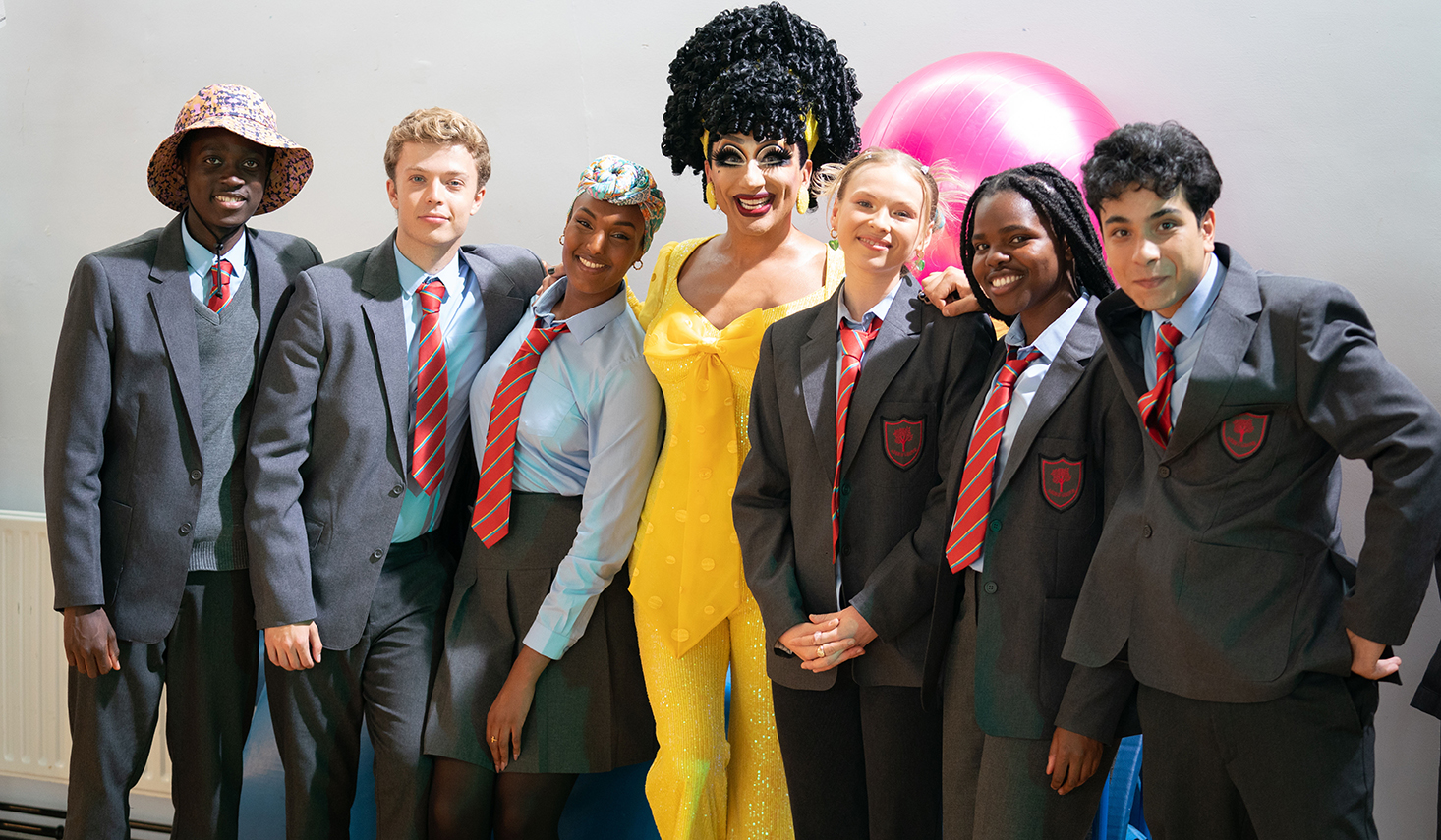
Bianca, what was your reaction when Layton first suggested you appear in Bad Education?
BIANCA: Oh, $6 million. Top tier flight. No, I’m kidding!
LAYTON: We wish, not on the BBC budget chile!
BIANCA: Girl, glad I did American Drag Race! No, the crazy thing about it was we talked about it in the dressing room and I am this type of person where I will talk and come up with ideas and chat with anybody and let’s go back and forth, because basically we have a lot of time to kill when you’re backstage and when you travel the road.
LAYTON: You had a lot of time to kill.
BIANCA: I did, I wasn’t the lead. I had a lot of time to kill and so, just chatting and catching up and what have you, my rule, always, always, always, always is, this is what I know, I’ll be glad to help in any way and let’s talk about it, put it on paper, call me and let’s make magic – and nine times out of ten it’s just scheduling. And so here it was, I was back out on the road again a couple of months later doing my thing and then Layton calls me up and says, ‘Hey, we think we’ve got this blocked’ and then I think I said, ‘I’ve got something that week, but I’m free this week before I go to this thing’ and they said ‘great’. And you never know if that’s going to happen, because, usually, especially when you’re dealing with a large production that’s filming everything, they’re going to say, ‘Oh, fuck this bitch, we can work around, we can’t deal with her’. But they said, ‘No, we can make this work if you can come in that day’. So I flew into London a few days before, did it, zip, pop, go, and then continued on the rest of my tour. So I’m grateful that they worked it out for me as well.
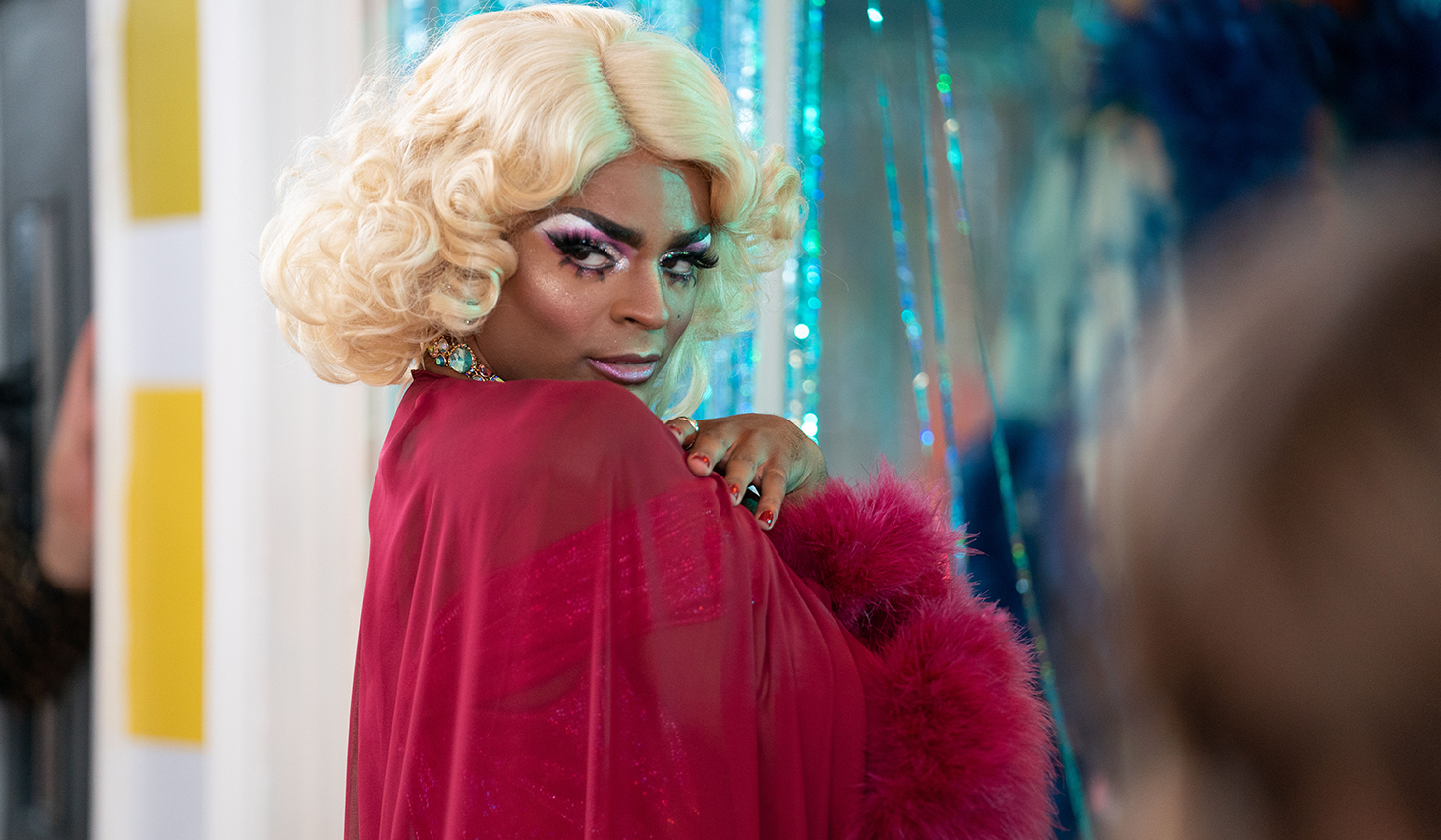
Layton, your character came out very early on in the initial run of Bad Education 10 years ago. What did it mean to you at the time?
LAYTON: I think the great thing about playing Stephen is that I don’t think we ever had a coming out story. I think there was a joke line about me being like, ‘I’ve done some deep soul searching and I am gay’ but it wasn’t coming out, we all knew that Stephen was. I think from the jump we wanted Stephen just to be. So, now that I have the opportunity to come back 10 years later as Mr. Carmichael, not Stephen, it’s a massive part of my life because you have that one thing that people recognise you for in the streets – this was it, people know me from the show, people love it. And I confided in Bianca a couple of times, I was like, ‘I’m feeling a little bit bleugh because I know everyone loves Jack Whitehall, I’m taking over and I’m obviously very different to him’. You’re either going to get behind it or you’re not, it’s different. But I’m blocking all that out because I’ve got my paycheck, chile. So I’m not going to take a paracetamol for your headache at this point, just turn over or just watch it. I don’t need to know. I’m proud of what we did.
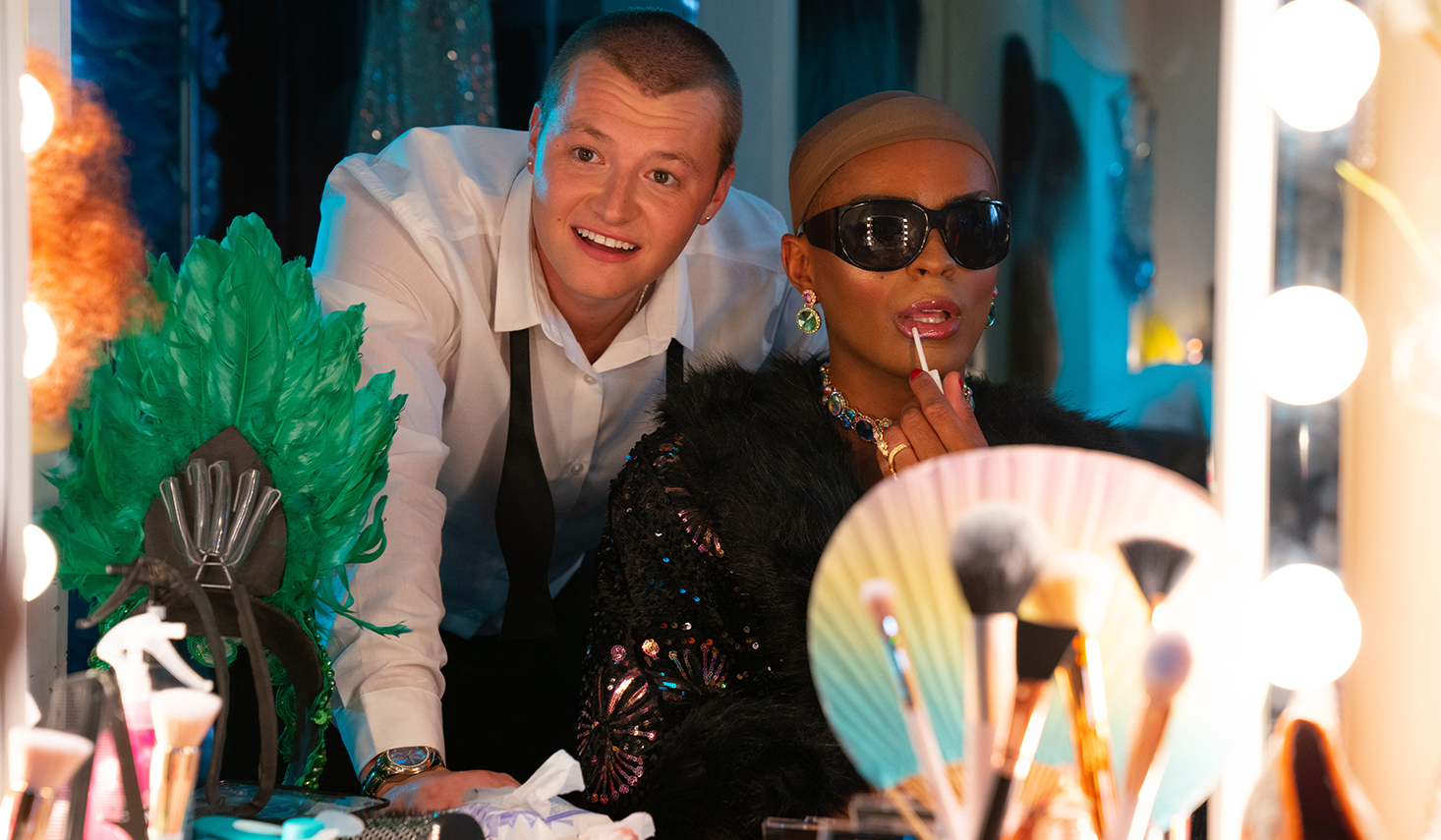
Appearing in the show and working as a co-writer gave you the opportunity to bring Black queer voices to the forefront of Bad Education on a massive platform like the BBC. Was that something you were conscious of during production?
LAYTON: Absolutely. I think we take for granted the fact that I’m just here doing my thing and I did have this moment being like, I’m an out queer Black teacher up in this crib as a lead on this BBC show. IT’s not every day that you turn on the TV and see that, especially someone who is teaching students because, I mean, you’ve got people in America crying about gays and queers just being anywhere close to kids, nevermind teaching them. Do you know what I mean? But in that moment, I’ve got to be honest, I wasn’t thinking about that. I was just thinking about the art, so I was aware of these moments, but you try not to get too caught up in that because you’ve just got to do the work and let everybody else judge that.
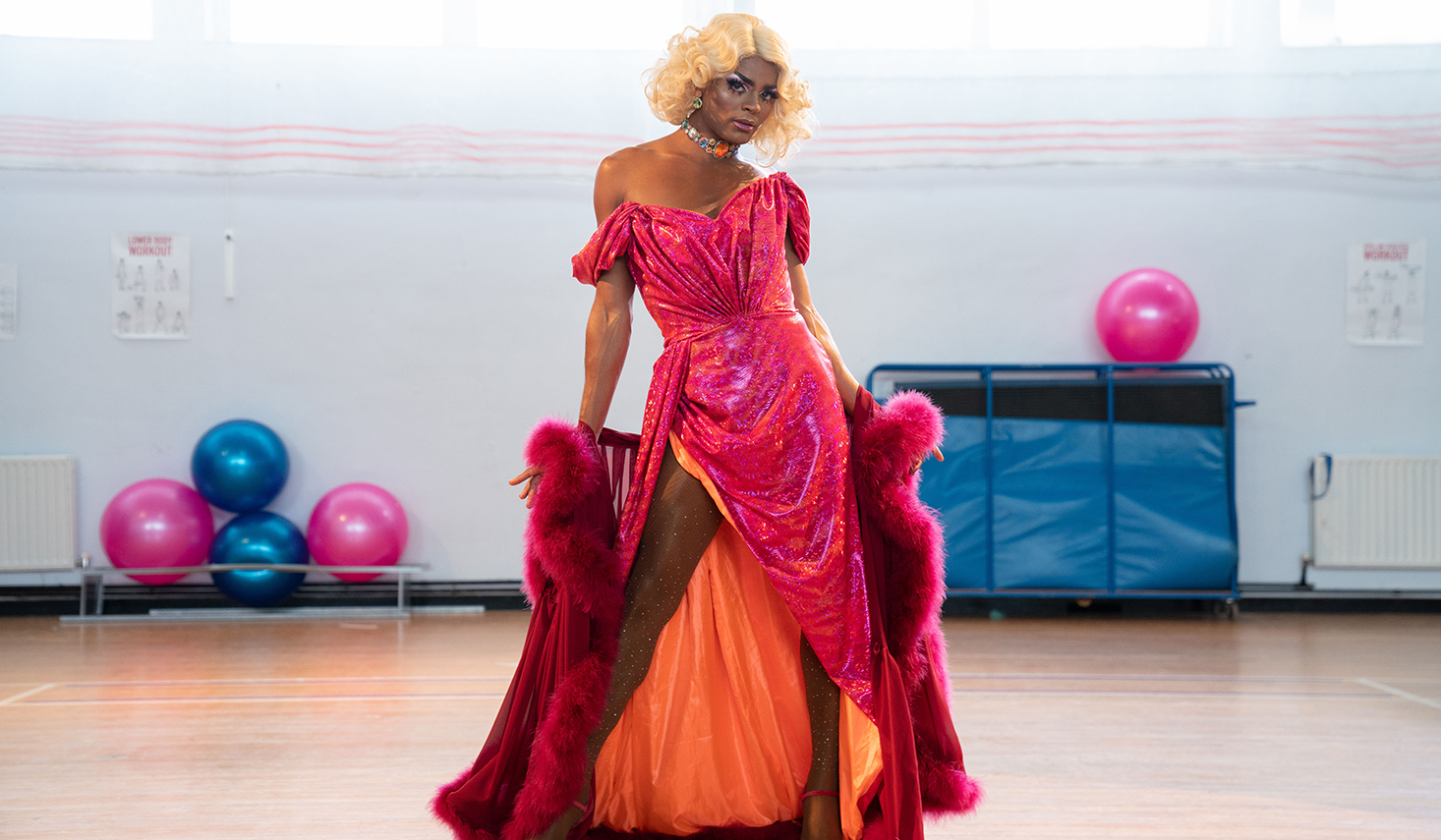
You touched on it there, but we are seeing increasing attacks from the right on LGBTQ+ stories and drag in both the UK and the US, particularly through things such as Drag Queen Story Hour. What was it like to have this platform where you can show how normal it is to have drag queens in an educational setting?
BIANCA: It’s weird because in the musical Everybody’s Talking About Jamie, I’m in school as a drag queen, when I did Hurricane Bianca, I’m in school as a drag queen and now this as well. I think, and this is just coming from an American standpoint, they’ve just run out of fucking ideas and they have to come and find something else to complain about. I love that in America now, the Republican Party, without getting too political, is saying, ‘Oh, drag queens are grooming children’. Drag queens can’t even groom their fucking wigs. You see what they look like. So let’s just be honest, it has nothing to do with any of that. We’re all part of society. We’re all part of the world. I come from a country where literally 60, 70 years ago you couldn’t marry someone of another race, so this is where we are now. They’re nit picking and trying to find a way to make this an issue. It is not an issue. We have bigger problems. We have no healthcare in America. We have people that are homeless. We’ve got billionaires that aren’t paying taxes. Those are real issues. So to me, I find it insane that this is even a topic on any level at all. I mean, look, there’s a reason why RuPaul’s Drag Race is as big as it is. There’s a reason why it’s being celebrated. I think the craziness of it just does become too political. They’re trying to avoid other things going on in the world, so you really have to tune it out. Ain’t no drag queens grooming any children and it’s not going to ruin any child’s lives by watching Bad Education and seeing a gaggle of drag queens show up at a school. It’s not the end of the world.
LAYTON: And we were not thinking about any of that shit on set.
BIANCA: Hell no!
LAYTON: It was a riot from start to finish. But also, there was definitely a moment I wanted all of the drag queens and my sisters and friends to be paired up with a student and they got a couple of minutes to work out what they wanted to do. It was a catwalk moment and something so simple and magical, I was literally just watching it like, ‘Wow’. It’s weirdly emotional just to see all of these people from all walks of life, these kids and these queens, having the most fun and most people said their favourite day on set was that day because it was just so much colour, so much character, obviously loads of additional people that had never been on set before and just bringing this energy that was like, electric. So I really hope that people feel that because we felt it on set, it was really fab.
BIANCA: Don’t you find it funny that we often say, ‘When all of these different types of people, different walks of life, get together’, you know what? We need to stop saying that. We just need to say, ‘reality’. That is reality. You go to Tesco, you go to the subway, you walk up and down the street, honey, that is reality, a mix of everything there is. So I think that’s what’s important is bringing reality, a grouping of people that you would see in real life onto the camera. I think that’s a great way to look at it.
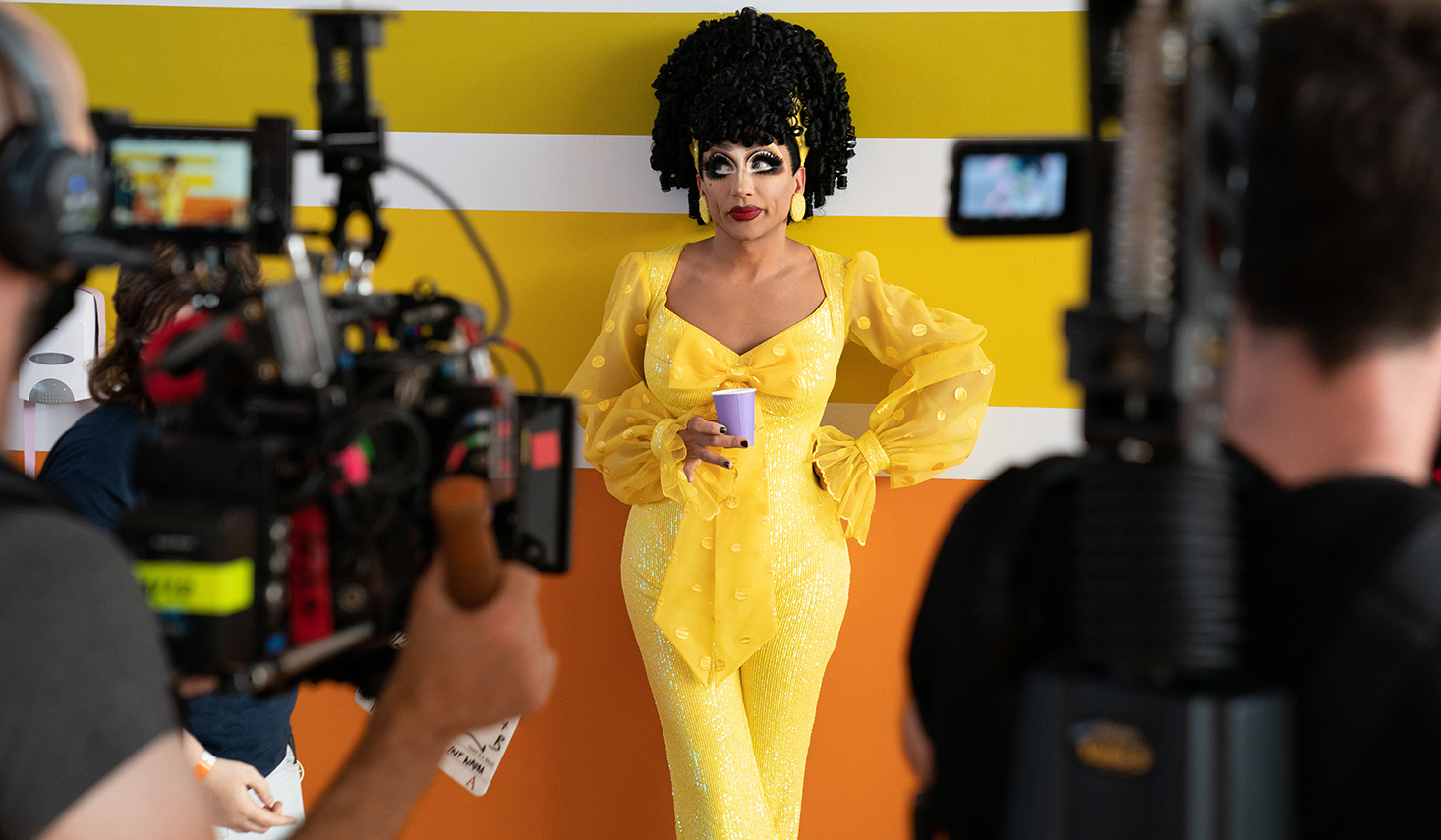
In the decade since Bad Education’s initial run came to an end, LGBTQ+ shows such as RuPaul’s Drag Race, Pose and Schitt’s Creek have brought our community’s stories to the forefront on TV. Although there is still more work to be done, how would you say the way audiences respond to LGBTQ+ storytelling has changed in recent years?
LAYTON: I think 10 years ago this wouldn’t have been a thing. I don’t think I would have been leading the show 10 years ago, so I’m really proud to have been part of the change.
BIANCA: I think it’s two things. I think maybe for me, definitely 10 years ago, or I could even go a little further, let’s say 20 years ago, I would experience drag, but not gay. There were many performers that I knew that you would only find in a bar or in a cabaret space for it was always a big story when a straight actor played someone gay because it was such a “challenge”, which was a different world. And then I started seeing people that were either established as gay and not much being told about them and now, we’re getting gay stories, which I think is the difference and I think that’s what’s important. It’s not so much, ‘Oh, my life was bad, oh, I was beaten up, oh, I’m gay and I struggle’. Now, it’s just like, ‘Yep, I’m gay, this is my husband, we have three cats, we’re living our lives, we’re doing our thing’ and I think that’s it – the normalisation of, ‘This is our life and this is the fact that we exist’. I think that’s important and I think that’s what makes this kind of stuff magical. When you see something like that on the BBC, the extremes of something heightened like Drag Race, with all this fanfare and fantasy, and then you’ve got Bad Education, that to me is what’s so great because it is real life. It’s not like some artistic stretch of a struggle and some big issue. Walk down the street and try not to hit a gay person. I live in Palm Springs, they’re everywhere.
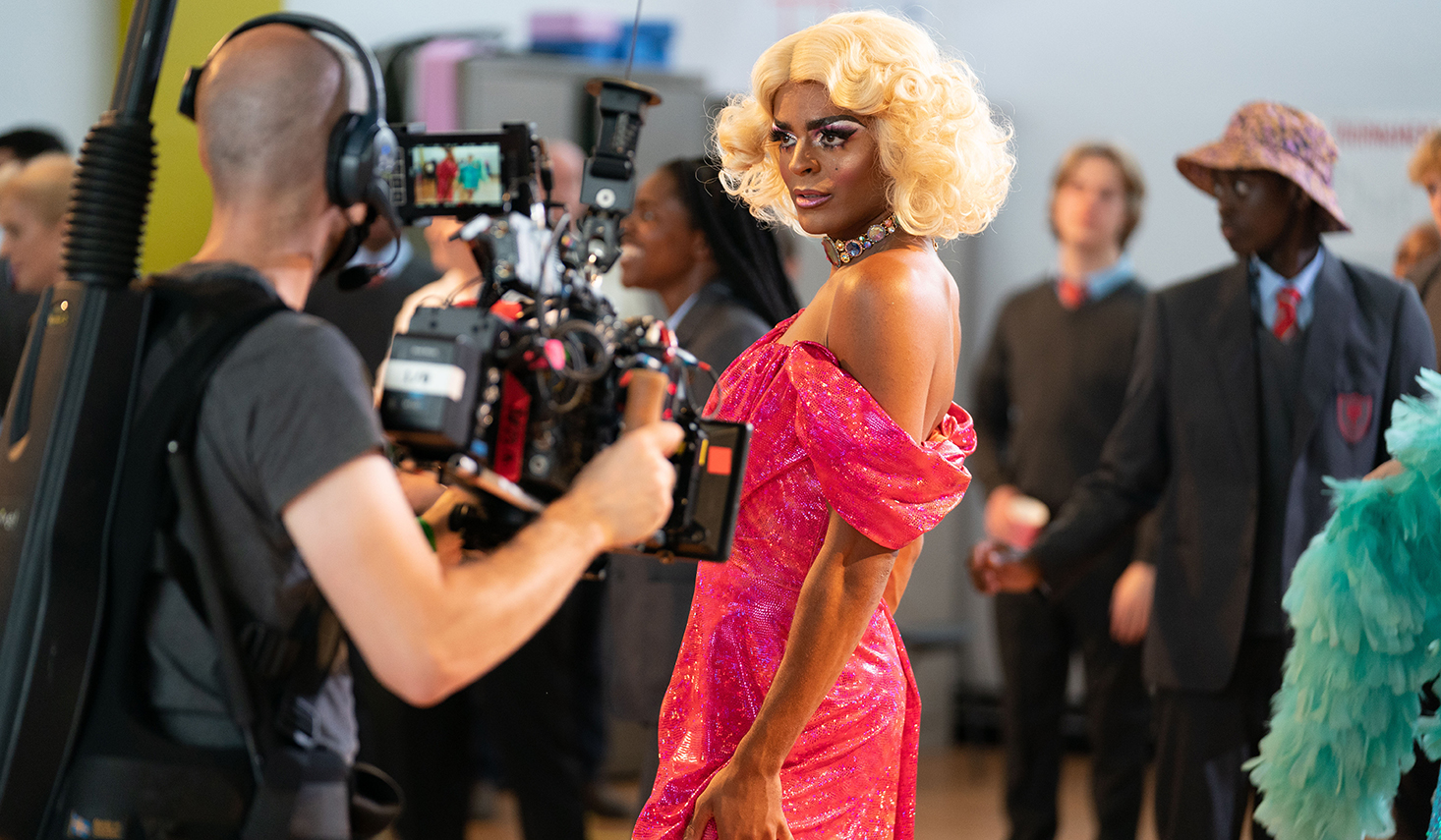
What do you both want viewers to take away from the new season of Bad Education?
BIANCA: It’s not so much what I want people to take away from it, I just want them to know this is real life. The world is not so black or white, the world is not so religiously oriented where you can’t look beyond things and the most important thing is, it’s entertainment. If we saw the same story of a girl and a boy and she changes her hair and then the boy’s in love with her, you know, it’s the same format. People would say, ‘I’ve seen this already’. Here we are giving you a different version, but also introducing real life to some people that may not know anything about it. Don’t take everything so seriously and just see what fun can be had with it.
LAYTON: Here, here! I agree with all of that. There’s a lot of serious stuff out there which we love and we need, but I think Bad Education is pure fun and it’s escapism from the real world, but it is also the real world.
All episodes of Bad Education are available to stream on BBC iPlayer and will air weekly on BBC Three.
This interview first appeared in the February 2023 issue of GAY TIMES Magazine, which you can read here.
